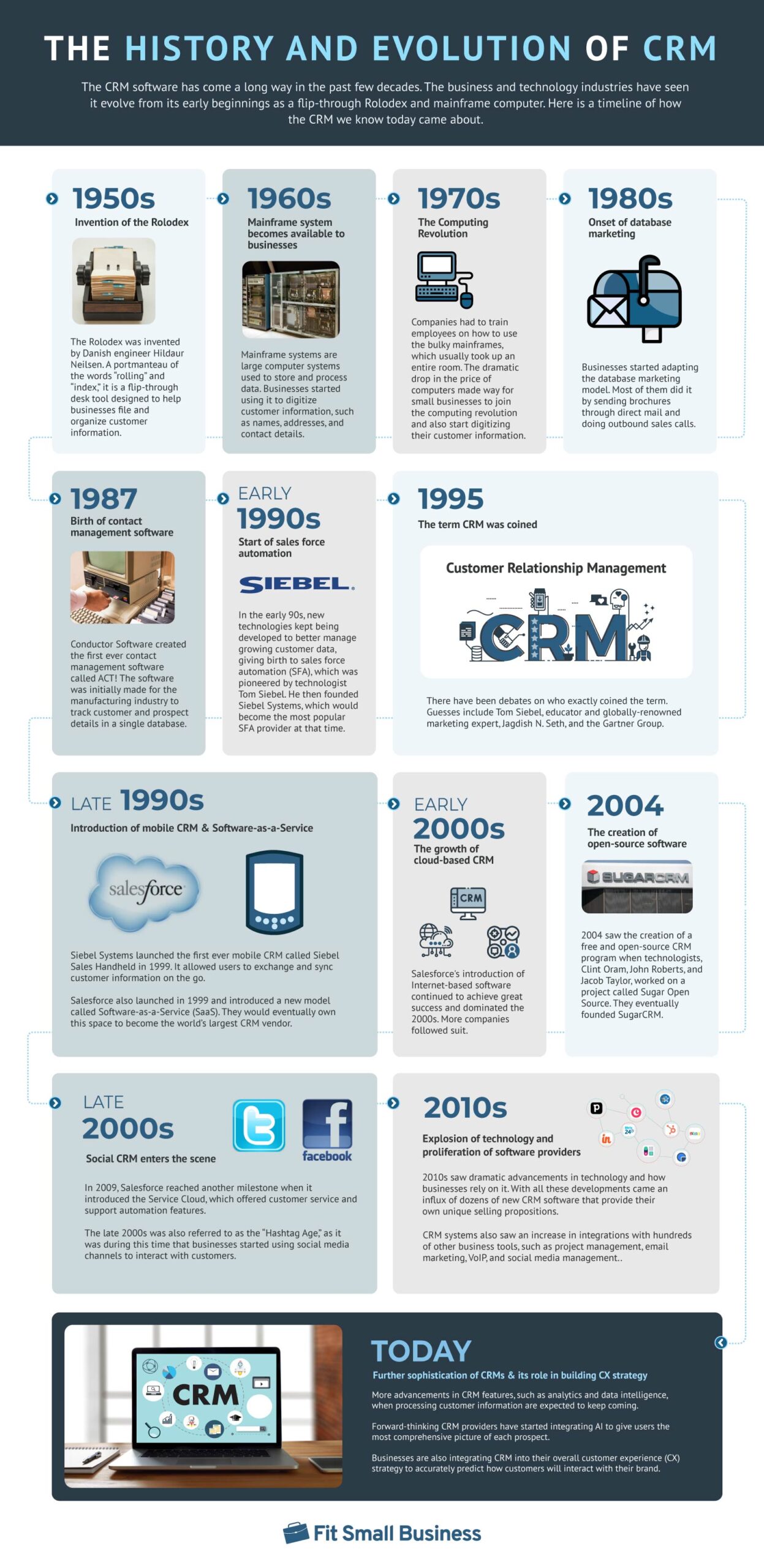Introduction
Customer Relationship Management (CRM) software has undergone a remarkable evolution since its inception. What started as a simple tool for contact management has transformed into a sophisticated platform for optimizing the entire customer experience. This article traces the evolution of CRM software, highlighting its key milestones and the shifting focus from managing contacts to delivering personalized and seamless customer experiences. You can type keyword in google with keyword Crm Software, What Is Crm Software, Crm Management Software, Best Crm Software, Crm Software Meaning, Crm Software Examples, Crm Softwares, Crm Software For Small Business, Free Crm Software, Top Crm Software, ,
The Origins of CRM Software
The concept of CRM dates back to the 1980s when businesses began using database marketing techniques to manage customer information. Early CRM systems were primarily focused on storing contact details and basic interactions, such as phone calls and emails, in a centralized database. These systems provided businesses with a more organized way to track customer interactions but lacked the sophistication needed for effective relationship management.
The Rise of Sales Force Automation
In the 1990s, CRM Software evolved to incorporate sales force automation (SFA) capabilities. SFA modules enabled businesses to automate sales-related tasks, such as lead management, opportunity tracking, and pipeline forecasting. By streamlining the sales process, SFA-equipped CRM systems improved sales efficiency and effectiveness, empowering sales teams to close more deals in less time.
Expansion into Marketing and Customer Service
As the internet and digital marketing gained prominence in the early 2000s, CRM software expanded beyond sales to encompass marketing automation and customer service functionalities. Marketing automation modules enabled businesses to create targeted campaigns, track customer interactions across multiple channels, and measure campaign performance. Similarly, customer service modules facilitated case management, ticketing, and support analytics, allowing businesses to deliver timely and personalized customer support.
The Shift Towards Customer Experience Optimization
1. Data-Driven Insights
One of the defining characteristics of modern CRM software is its ability to provide data-driven insights into customer behavior and preferences. By analyzing vast amounts of customer data, including interactions, transactions, and social media engagement, CRM software enables businesses to gain a deeper understanding of their customers and anticipate their needs. These insights empower businesses to personalize interactions, tailor offerings, and optimize the customer experience across all touchpoints.
2. Omnichannel Engagement
Another significant evolution in CRM software is the shift towards omnichannel engagement. In today’s digital world, customers interact with businesses through multiple channels, including websites, social media, mobile apps, and physical stores. Modern CRM software integrates these channels to provide a seamless and consistent experience across all touchpoints. Whether a customer reaches out via email, chat, or phone, CRM software ensures that their interaction history and preferences are readily available to provide personalized and contextually relevant support.
Case Studies: Real-World Examples of CRM Evolution
1. Company XYZ: Personalized Marketing Campaigns
Company XYZ, a retail giant, leverages modern CRM software to deliver personalized marketing campaigns to its customers. By analyzing past purchases, browsing behavior, and demographic information, Company XYZ tailors product recommendations and promotional offers to each customer’s preferences. This personalized approach has resulted in higher conversion rates, increased customer satisfaction, and improved brand loyalty.
2. Tech Solutions Inc.: Omnichannel Customer Service
Tech Solutions Inc., a software company, utilizes CRM software to provide omnichannel customer service to its clients. Whether customers reach out via email, phone, or social media, Tech Solutions Inc. ensures a seamless support experience by integrating customer interactions across all channels. This approach has led to faster response times, reduced customer effort, and higher satisfaction scores.
The Future of CRM Software
Looking ahead, the future of CRM software lies in leveraging emerging technologies such as artificial intelligence (AI), machine learning, and predictive analytics to further enhance the customer experience. AI-powered CRM systems will enable businesses to automate routine tasks, personalize interactions at scale, and anticipate customer needs more accurately. Additionally, CRM software will continue to evolve to meet the changing needs of businesses and consumers in an increasingly digital and interconnected world.
Conclusion
The evolution of CRM software from contact management to customer experience optimization represents a significant paradigm shift in how businesses approach customer relationship management. What began as a tool for organizing contact information has evolved into a sophisticated platform for understanding, engaging, and delighting customers across all stages of the customer journey. As businesses continue to prioritize customer-centric strategies, CRM software will remain at the forefront of driving meaningful and personalized interactions that foster loyalty and drive growth.

